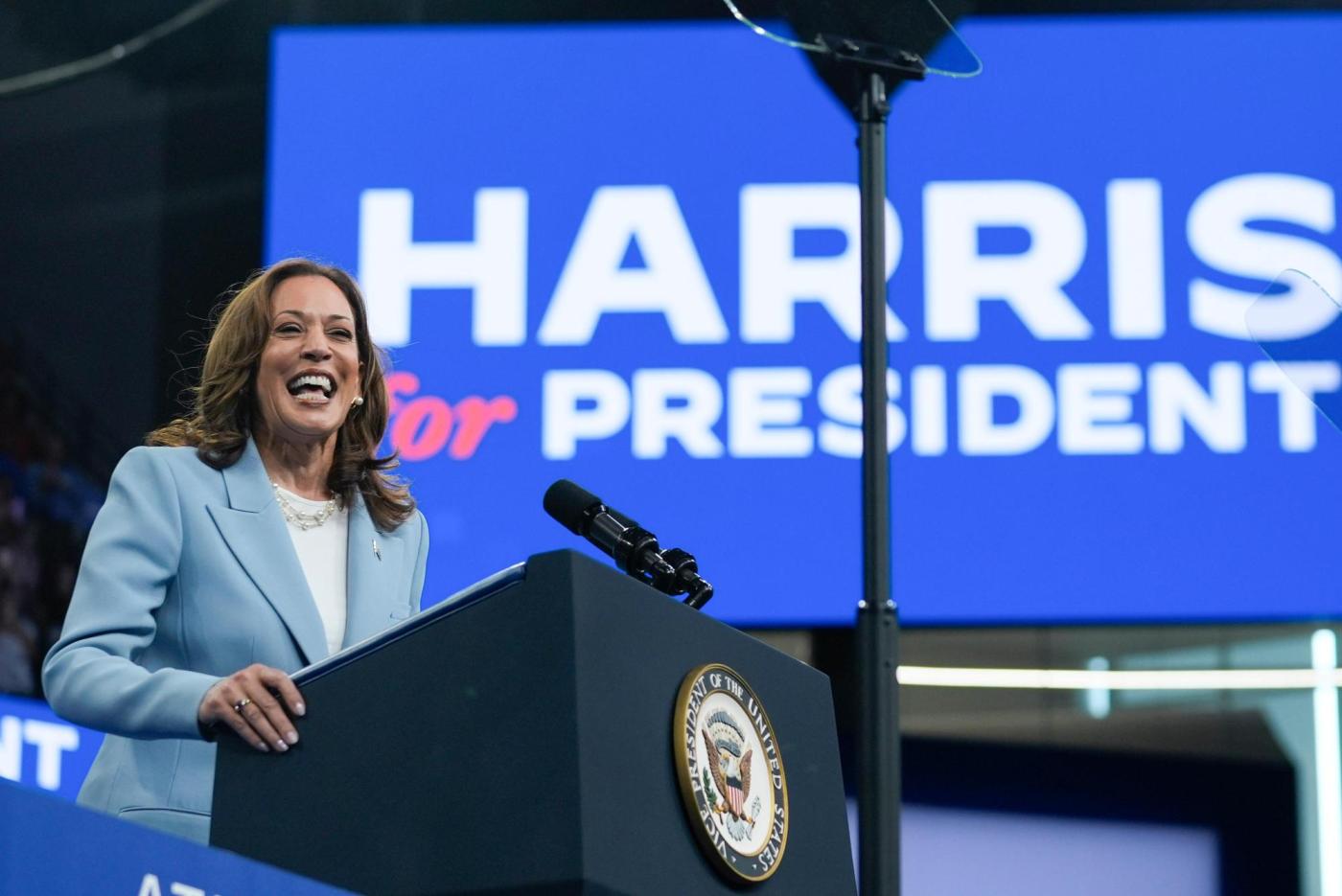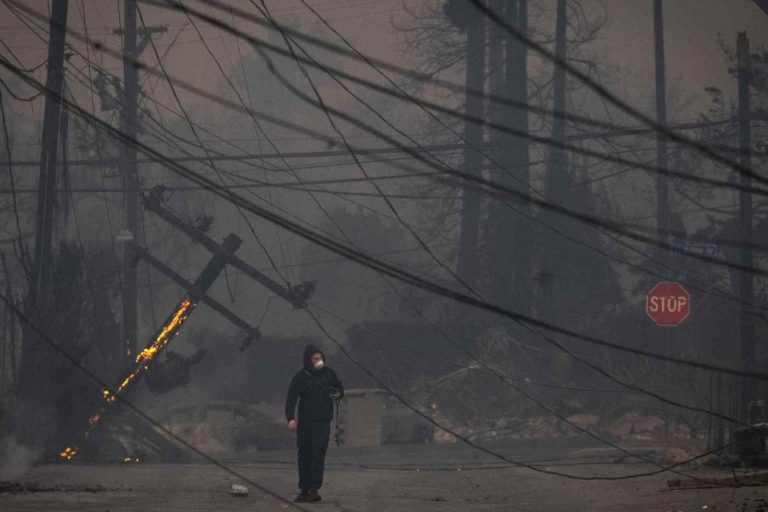At a campaign rally in the Detroit area Wednesday, Kamala Harris was speaking about the threat of Project 2025 and the Trump agenda when a small group of protesters interrupted her. I couldn’t make out their words, but it was reported that they were shouting something about the Gaza Strip. Harris reacted with her trademark, “I am speaking now.” The protesters persisted. Harris’ tone grew stern. “You know what?” she said. “If you want Donald Trump to win, then say that. Otherwise, I’m speaking.” She continued, to cheers from the crowd. The protesters were escorted out.
When I watched a video of this scene, my heart sank. It reminded me of another interruption, at a Democratic fundraiser at a nightclub in New York, 32 years ago. Bill Clinton was speaking when Bob Rafsky, a member of the AIDS activist group ACT UP, stood up to challenge him on his plans to deal with the AIDS epidemic. “We’re dying,” Rafsky said. Clinton engaged at first, saying he was running for president “to do something about it.” Rafsky continued to shout. Clinton became angry. “Would you just calm down?” he said.
I knew Rafsky. I was a member of ACT UP, and a journalist covering AIDS in the gay press. When Clinton said, “Calm down,” I heard, Some things are more important than your life. In campaign math, this was probably true: Only a fraction of a percent of Americans were living with AIDS. Clinton had statistically bigger issues to address.
Tone-deaf attitude
Yes, before her Detroit speech, Harris met very briefly with a group of pro-Palestinian activists. But at the rally, I heard the same steely political calculus in Harris’ admonition to the protesters: She has to focus on beating Trump, not on a genocide occurring 6,000 miles away and affecting about 2 million people, some of whom are related to or have close ties with a small fraction of the American electorate for which the war in Gaza is a decisive issue in this election. And, like people confronting AIDS in 1992, Palestinian Americans and others who want an end to Israel’s war should know that the other candidate would be even worse.
Such reasoning is as statistically sound as it is tone-deaf and emotionally blind. It appears that at least one of the protesters at the rally is of Palestinian descent. And given the demographics of the Detroit area, it is quite likely that others in the crowd were Palestinian Americans, very possibly with family and friends in Gaza who are at risk of being killed, whether by bombing, disease or starvation in the coming months, if they are not dead already.
The Biden administration has supported Israel, has sent it arms as it has pursued its relentless retaliatory onslaught against the people of Gaza. The administration has barely tempered its support even as, reportedly, around 40,000 people have died, a majority of them women and children. If Trump is elected, Israel will almost certainly be even more emboldened. If Harris is elected, there is a chance, though by no means a guarantee, that the United States will gradually turn away from its decadeslong policy of unconditional military, political and economic support of Israel.
Most Democratic voters, even most voters who care about Israel-Palestine, can probably see themselves voting for Harris, knowing that her administration will not bring immediate relief to the Palestinian people, because they also know that on this and other issues, a Harris administration will be better than a Trump one. But some voters are like Rafsky: They cannot stand to live in a world in which Joe Biden’s vice president, who has not voiced any disagreement with the administration’s Middle East policies, wins the presidency. It’s not that they want Trump to win; it’s that the level of political cynicism they are being asked to adopt feels unbearable.
The psychic price
Related Articles
Douthat: Scandal remains over Biden’s abilities as president
Elon Musk’s interview with Donald Trump marred by technical glitches
Latinos are excited about Kamala Harris, but she has work to do to win the crucial voting bloc, experts say
Everyone agrees there’s a homeless crisis in the US. Plans to address it vary among mayor candidates
Trump reportedly used a slur against Harris in private conversations
These voters are not choosing between Harris and Trump. They are choosing between their sense of themselves as moral beings if they vote for Harris and their sense of themselves if they vote for a third-party candidate or for no one at all. Some of them were among the more than 100,000 people who voted “uncommitted” in Michigan’s Democratic primary in February to send a message of opposition to Biden’s support for Israel.
If they vote for Harris in November, what will that say to the people of Gaza — that they’d held their noses while people died? What will they tell their children — that politics is the game of the possible, and sometimes it’s just not possible to stop a genocide? What will they tell themselves to be able to sleep at night?
For these voters, the psychic price of voting for Harris — of voting at all — is extremely high. It is possible that they could be convinced to pay this price, because, of course, they know, just as I do, that a Harris Middle East policy would be infinitely preferable to a Trump one. But they have to be convinced, not dismissed.
M. Gessen is a columnist for The New York Times.











